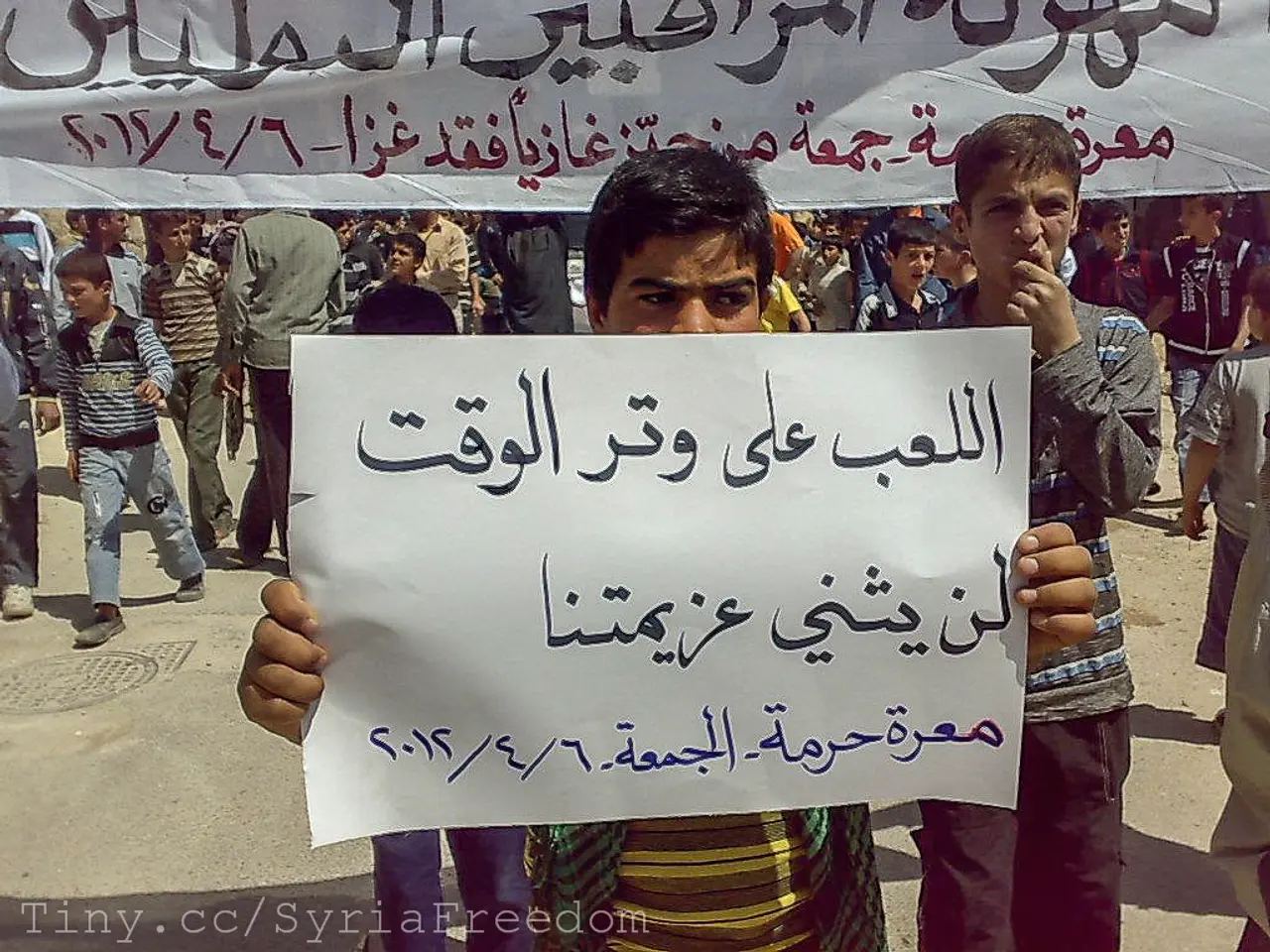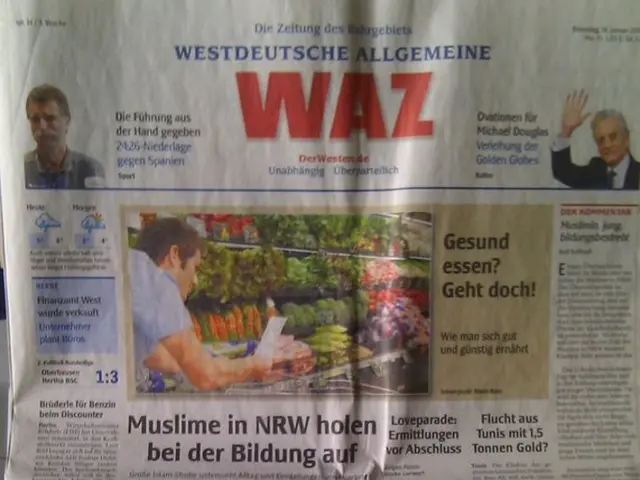Inadequate international assistance flowing into Gaza, according to Germany's statement
In recent days, a German security cabinet meeting discussed various options to put pressure on Israel regarding the ongoing crisis in Gaza. While no decision was made, the conversation underscores the international community's growing concern over the situation [1].
The Israeli military offensive on Gaza since then has resulted in the death of at least 60,249 Palestinians, according to Gaza's health ministry, a figure that the United Nations considers reliable [6]. The humanitarian crisis in Gaza is further compounded by the fact that more than two million Palestinians are facing starvation, as reported by aid agencies [9].
The delivery of humanitarian aid to Gaza has been severely hampered by both Israeli restrictions and the operational context shaped by Hamas and other groups. Israeli Defense Forces (IDF) regularly deny or delay permission for humanitarian convoys to move, causing significant logistical challenges, delays of up to 46 hours en route, and wasted resources [1][3]. Israeli restrictions include a near-total blockade and selective approvals of aid movements, allowing only some convoys and crossing points to operate, which leads to extreme shortages in food, medical supplies, and fuel [2][3][4].
The fragile security situation inside Gaza, including a breakdown of law and order due to the collapse of police forces and the presence of armed gangs, complicates the safe distribution of aid [1]. Efforts to deliver aid are further complicated by intensified combat near humanitarian routes, endangering aid workers and installations [1].
Regarding Hamas and other organizations, while some claims allege diversion of aid, these accusations are widely refuted by the UN and other impartial entities [4]. However, the presence of armed groups and deteriorating governance inside Gaza contribute to insecurity and operational challenges for humanitarian organizations [1][4].
Efforts to provide aid have included limited "tactical pauses," airdrops, and new aid schemes involving local organizations and private security firms, but these methods have been largely criticized as inadequate, inefficient, and sometimes dangerous, causing crowding and difficulties for vulnerable populations to access aid [2].
In an attempt to alleviate the crisis, Israel has allowed more trucks to cross the border and some foreign nations to carry out airdrops of food and medicines. However, the amount of aid entering Gaza is still considered dangerously low by international agencies [7]. Germany has taken a tougher line against Israel's actions in Gaza and the occupied West Bank in recent weeks, criticizing the amount of aid entering Gaza as "very insufficient" [8].
Berlin has noted that Israel has "considerably" increased the number of aid trucks allowed into Gaza to about 220 a day. The United States has also promised a Gaza food plan after an envoy visit [9]. Despite these efforts, the international community remains committed to ensuring the full delivery of aid to Gaza, as stated by the German government [10].
References: 1. Al Jazeera 2. Reuters 3. The New York Times 4. The Guardian 5. BBC News 6. The Associated Press 7. Deutsche Welle 8. Reuters 9. The Jerusalem Post 10. Deutsche Welle
Engaging in diplomatic discussions, the German government is deliberating various options to urge Israel towards a peaceful resolution in the Gaza crisis, considering the escalating war-and-conflicts and political tensions in the region. Simultaneously, there's an urgent need for international attention to the general news stories that highlight the dire humanitarian situation, with more than two million Palestinians at risk of starvation due to ongoing political complications.








